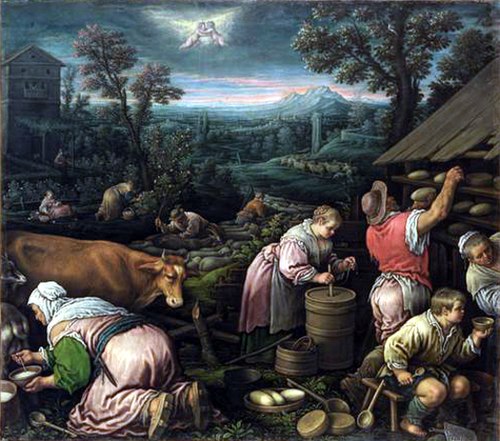Shallverb
Used before a verb to indicate the simple future tense in the first person singular or plural.
Shallverb
Used similarly to indicate determination or obligation in the second and third persons singular or plural.
Shallverb
Used in questions with the first person singular or plural to suggest a possible future action.
Shallverb
(obsolete) To owe.
Shallverb
To owe; to be under obligation for.
Shallverb
To be obliged; must.
Shallverb
As an auxiliary, shall indicates a duty or necessity whose obligation is derived from the person speaking; as, you shall go; he shall go; that is, I order or promise your going. It thus ordinarily expresses, in the second and third persons, a command, a threat, or a promise. If the auxillary be emphasized, the command is made more imperative, the promise or that more positive and sure. It is also employed in the language of prophecy; as, "the day shall come when . . . , " since a promise or threat and an authoritative prophecy nearly coincide in significance. In shall with the first person, the necessity of the action is sometimes implied as residing elsewhere than in the speaker; as, I shall suffer; we shall see; and there is always a less distinct and positive assertion of his volition than is indicated by will. "I shall go" implies nearly a simple futurity; more exactly, a foretelling or an expectation of my going, in which, naturally enough, a certain degree of plan or intention may be included; emphasize the shall, and the event is described as certain to occur, and the expression approximates in meaning to our emphatic "I will go." In a question, the relation of speaker and source of obligation is of course transferred to the person addressed; as, "Shall you go?" (answer, "I shall go"); "Shall he go?" i. e., "Do you require or promise his going?" (answer, "He shall go".) The same relation is transferred to either second or third person in such phrases as "You say, or think, you shall go;" "He says, or thinks, he shall go." After a conditional conjunction (as if, whether) shall is used in all persons to express futurity simply; as, if I, you, or he shall say they are right. Should is everywhere used in the same connection and the same senses as shall, as its imperfect. It also expresses duty or moral obligation; as, he should do it whether he will or not. In the early English, and hence in our English Bible, shall is the auxiliary mainly used, in all the persons, to express simple futurity. (Cf. Will, v. t.) Shall may be used elliptically; thus, with an adverb or other word expressive of motion go may be omitted.
Mayverb
To be strong; to have power (over).
Mayverb
To be able; can.
Mayverb
To be able to go.
Mayverb
To have permission to, be allowed. Used in granting permission and in questions to make polite requests.
Mayverb
Expressing a present possibility; possibly.
Mayverb
Expressing a wish (with present subjunctive effect).
Mayverb
Used in modesty, courtesy, or concession, or to soften a question or remark.
Mayverb
To gather may, or flowers in general.
Mayverb
To celebrate May Day.
Maynoun
The hawthorn bush or its blossoms.
Maynoun
(archaic) A maiden.
Mayverb
An auxiliary verb qualifying the meaning of another verb,
Mayverb
Liberty; permission; allowance.
Mayverb
Contingency or liability; possibility or probability.
Mayverb
Modesty, courtesy, or concession, or a desire to soften a question or remark.
Mayverb
Desire or wish, as in prayer, imprecation, benediction, and the like.
Maynoun
A maiden.
Maynoun
The fifth month of the year, containing thirty-one days.
Maynoun
The early part or springtime of life.
Maynoun
The flowers of the hawthorn; - so called from their time of blossoming; also, the hawthorn.
Maynoun
The merrymaking of May Day.
Maynoun
the month following April and preceding June
Maynoun
thorny Eurasian shrub of small tree having dense clusters of white to scarlet flowers followed by deep red berries; established as an escape in eastern North America
Mayverb
expressing possibility
Mayverb
used when admitting that something is so before making another, more important point
Mayverb
used to ask for or to give permission
Mayverb
expressing a wish or hope
Maynoun
the fifth month of the year, in the northern hemisphere usually considered the last month of spring
Maynoun
one's bloom or prime
May
May is the fifth month of the year in the Julian and Gregorian calendars and the third of seven months to have a length of 31 days. May is a month of spring in the Northern Hemisphere and autumn in the Southern Hemisphere.
















